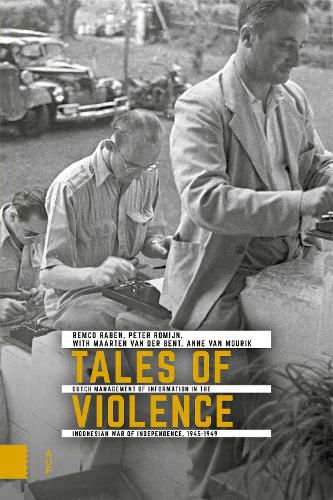Readings Newsletter
Become a Readings Member to make your shopping experience even easier.
Sign in or sign up for free!
You’re not far away from qualifying for FREE standard shipping within Australia
You’ve qualified for FREE standard shipping within Australia
The cart is loading…






Although it has long been known that the Indonesian War of Independence was far more violent than generally assumed by the Dutch public, for a long time the tendency to downplay, ignore, or justify the scale and nature of this violence dominated. Tales of Violence examines how politicians and administrators in both the Netherlands and Indonesia have dealt with this large-scale violence and poses painful questions.
How were the violence of war and the numerous excesses between 1945-1949 discussed, concealed, passed on, manipulated, and used politically? What did Dutch, colonial, and Indonesian politicians and administrators know about the nature of the actions of their own and enemy troops?
Why did investigations into specific scandals grind to a halt or were their outcomes hidden from the public? What did those in charge do with their knowledge and how did communications influence public support for warfare? The authors argue that the way the war in Indonesia has long been viewed has its origins partly in the language and manipulation of information during the conflict.
$9.00 standard shipping within Australia
FREE standard shipping within Australia for orders over $100.00
Express & International shipping calculated at checkout
Although it has long been known that the Indonesian War of Independence was far more violent than generally assumed by the Dutch public, for a long time the tendency to downplay, ignore, or justify the scale and nature of this violence dominated. Tales of Violence examines how politicians and administrators in both the Netherlands and Indonesia have dealt with this large-scale violence and poses painful questions.
How were the violence of war and the numerous excesses between 1945-1949 discussed, concealed, passed on, manipulated, and used politically? What did Dutch, colonial, and Indonesian politicians and administrators know about the nature of the actions of their own and enemy troops?
Why did investigations into specific scandals grind to a halt or were their outcomes hidden from the public? What did those in charge do with their knowledge and how did communications influence public support for warfare? The authors argue that the way the war in Indonesia has long been viewed has its origins partly in the language and manipulation of information during the conflict.